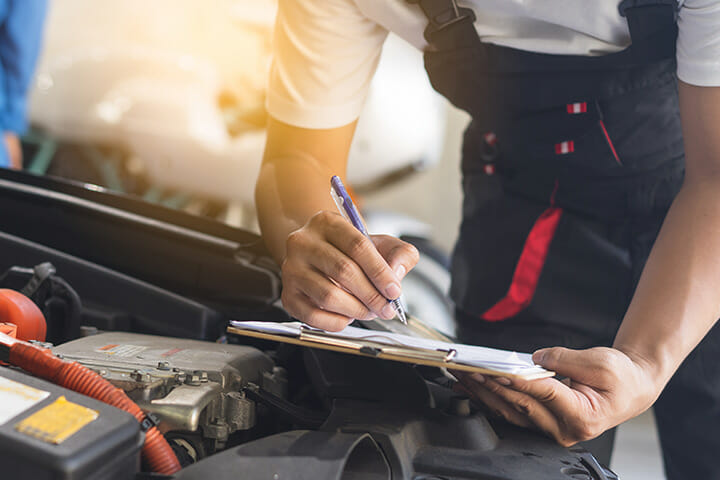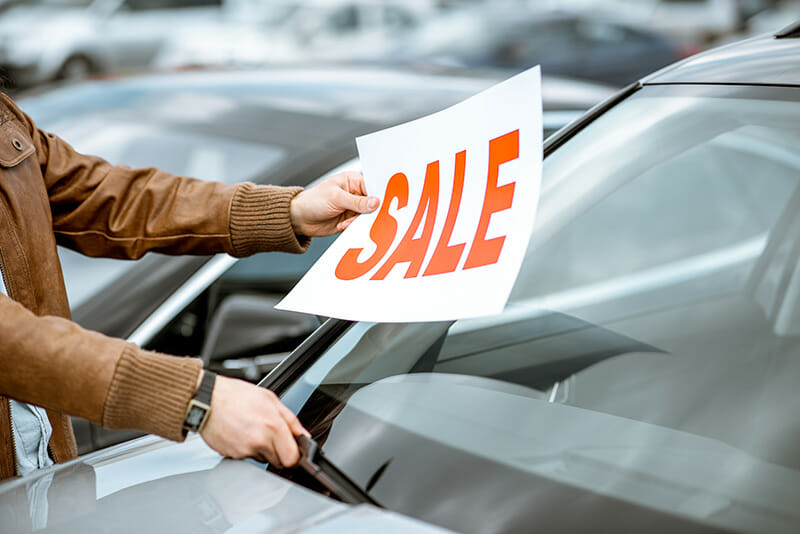Top Tips for Buying a Used Car
When it comes to purchasing a used car, there are many options available to you. You can choose to buy from private sellers, well-known dealerships, small dealerships, or various online marketplaces. However, regardless of where you decide to buy your vehicle from, there are some essential tips you should keep in mind. This will help to ensure you’re making the best possible decision when buying a used car.
Here’s our top 13 tips to help you save time and money!
1. Make and Model
It’s a good idea to do some research on the make and model of the car you’re interested in purchasing. This can help you find out if the car has a good reputation for reliability. You can also look up reviews from other car owners to get a better idea of what to expect.
2. Safety Features
Consider the car’s safety features: safety should always be a top priority when purchasing a car. Make sure the car has essential safety features such as airbags, anti-lock brakes, and stability control. You can also check the car’s safety rating from organisations such as ANCAP that publish safety ratings for vehicles in Australia.
3. Cost of Ownership
Buying a car is not just about the purchase price, but also about the ongoing cost of ownership. Factors to consider when comparing used cars include fuel efficiency, car insurance costs, and maintenance expenses. For example, a car that has a history of frequent repairs may end up being more expensive in the long run. You may be better off choosing a car with a higher purchase price if it will be more reliable.
4. Price
When purchasing a used car, it’s important to negotiate the price to ensure that you’re getting a fair deal. Do some research on the value of similar cars in your area. This will help you to be prepared going into the negotiation, and if you can get the price down a little you will also save money on your car loan.

5. Service History
One of the most important things to consider when purchasing a used car is its service history. A car that has been well-maintained is more likely to run smoothly than one that hasn’t been properly serviced. Before purchasing any vehicle, you should check its logbooks to see its service history. This will give you an idea of how well the car has been maintained over the years. Sometimes repairs can be very cost. While it’s best to avoid purchasing a car with mechanical issues sometimes it’s completely unavoidable as things can go wrong at any time. We offer vehicle repair loans for unexpected car costs.
6. Wear and Tear
When inspecting a used car, look for signs of wear and tear – both inside and out. This can include scratches, dents, and tears in the upholstery. While some wear and tear is to be expected in a used car, excessive damage can be a red flag. Check the condition of tyres as this can tell you a lot about how well the car has been maintained. Make sure the tyres including the spare have adequate tread depth and that they are all wearing evenly. Uneven wear can be a sign of alignment issues or other problems.
7. PPSR Check
Another crucial step to take before buying a used car is to do a check on the Personal Properties Security Register (PPSR). The PPSR will tell you if the car is stolen, a write-off, or has any outstanding finance owed on it. If you buy a car that is stolen or has money owing on it, you may lose the vehicle and your money. If a car has been written off, it’s a sign that it may have been in a severe accident or experienced other significant damage.
8. Current Roadworthy Certificate
It’s also important to ensure that the car has a current Roadworthy Certificate (RWC) or Safety Certificate, as it’s required by law for all used vehicles sold privately or by dealers. If a Safety Certificate isn’t available, this may indicate that the car requires significant repairs. A Safety Certificate ensures that the car meets basic safety requirements and is roadworthy.

9. Car Facts Report
In addition to the above, it’s also a good idea to purchase a Car Facts Report. A Car Facts Report provides you with more detailed information about the car’s history, such as how many owners it’s had and any potential discrepancies with the odometer reading. This report can give you a better understanding of the car’s condition and history.
10. Test Drive
Before making a final decision, it’s essential to take the car for a test drive. During the test drive, listen for any unusual noises or smoking from the exhaust. These can be signs of significant problems with the car.
11. Pre-Purchase Vehicle Inspection
It’s also a good idea to have a qualified mechanic perform a pre-purchase inspection. This inspection can identify any problems with the car, check that it is in good condition and advise you on any future repairs that may be necessary. The results of the inspection are then compiled into a detailed report that outlines any issues found, along with recommendations for any necessary repairs or maintenance. This report can be used by the buyer to negotiate a lower price or to decide whether or not to proceed with the purchase.
12. Warranty Options
It’s essential to understand the warranty options available when purchasing a used car. Private sales do not come with a warranty, whereas dealers offer a statutory warranty under certain conditions. You can also purchase extended warranties from dealers, but note that not all issues may be covered. Some warranty providers have received negative feedback in the past, so it’s essential to research and select a reputable provider.
13. When buying a used car, don’t rush the decision
Finally, it’s important not to rush the decision when purchasing a used car. Take your time to thoroughly inspect the car, test drive it, and research its history. If something doesn’t feel right, don’t be afraid to walk away.

When buying a used car, it’s important to keep in mind that you’re taking on a certain level of risk. However, by following the tips outlined above, you can feel more confident about your purchase and minimise the risk of making a regrettable decision.
In addition to these tips, it’s also important to trust your instincts. Whether you’re at a dealership or buying a used car privately, if the seller is giving you a bad vibe, it may be best to look elsewhere.
Read our article: Buying from a car dealer vs private seller
With a little bit of research and some careful consideration, you can find a used car that meets your needs and provides you with years of reliable transportation.
Do you need to borrow money to purchase a car? Our team will work with you to find the perfect financing solution for your situation. We can organise car finance preapproval to give you the confidence to go car shopping, and help you save time and money while securing the best rates possible. We also have access to wholesale interest rates. Learn more about Car Loans.

